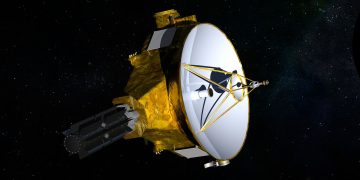Introduction
The horizon, that elusive line where the earth seems to meet the sky, has been a symbol of both possibility and restriction throughout human history. For millennia, it has sparked curiosity, inspiring explorers, scientists, and philosophers alike. In our daily lives, the horizon often evokes a sense of wonder and the yearning for something beyond. But is it a boundary—a limit that keeps us grounded—or is it an invitation, a beckoning call to venture into the unknown?
The tension between the horizon as a limit and an invitation is not just a poetic notion, but also a philosophical and practical dilemma. It speaks to the human spirit of adventure, the scientific pursuit of knowledge, and even our existential search for meaning. In this article, we will explore how the horizon serves as both a limit and an invitation, diving deep into its dual symbolism and the implications of each perspective.
The Horizon as a Limit
The Concept of Boundaries
At its most basic level, the horizon can be understood as a physical limit. It represents the farthest point that the human eye can see, beyond which the landscape fades into an indistinct blur. For early civilizations, this line was often perceived as an impenetrable barrier, a symbol of the edge of the known world. Ancient explorers, such as the Phoenicians or the early Greeks, regarded the horizon as the ultimate boundary, where the map ends and the unknown begins.
In this sense, the horizon served as a metaphor for the finite nature of human understanding. Just as we can only see so far, we can only know so much. The horizon, then, functions as a reminder of the limitations of human perception and knowledge. It represents a boundary beyond which the physical world and our understanding of it become obscured. For centuries, it was this boundary that kept humanity within the familiar confines of its own world.

Psychological Limits
On a psychological level, the horizon also represents the boundaries of human imagination and ambition. There is something inherently comforting in knowing where the limits lie—where things end and we can rest. In this view, the horizon might symbolize not just the physical edge of our vision but also the limits of our personal and collective capacities.
It is often said that humans have a natural tendency to avoid the discomfort of the unknown. The horizon, in this sense, could be seen as a wall that prevents us from venturing into realms that might be too challenging, too risky, or too uncomfortable to explore. Fear of failure, uncertainty, and the unpredictability of the unknown can keep people from moving beyond the horizon, both literally and metaphorically.
In this way, the horizon becomes a psychological barrier—one that restricts the breadth of our curiosity, creativity, and ambition. Just as sailors once feared the “edge of the world,” we too may fear the “edge” of our own potential.
The Horizon as a Scientific Limit
In scientific terms, the horizon also plays a critical role in our understanding of the universe. For astronomers, the concept of the “event horizon” is a literal boundary in space-time—one beyond which nothing, not even light, can escape the gravitational pull of a black hole. In physics, the horizon signifies the limits of observation. When we look at the stars, for example, we can only see those whose light has had time to reach us, bounded by the speed of light and the age of the universe itself.
This cosmic horizon, however, also serves as a reminder of our limitations in the face of vast, unimaginable distances. It forces us to confront the fact that, no matter how advanced our technology becomes, there are still areas of the universe that remain inaccessible, beyond the grasp of even our most powerful telescopes. The horizon, in this context, is a limit not only to our vision but to our ability to understand the cosmos.
The Horizon as an Invitation
The Spirit of Exploration
For many, however, the horizon represents not a limit but an invitation to explore. The very fact that the horizon remains ever-distant—never quite within reach—has inspired countless generations to push forward, to travel further, and to expand the boundaries of human experience. It calls to us like a challenge, daring us to reach beyond the visible and to discover what lies beyond our current understanding.
The horizon has inspired explorers throughout history. The great sea voyages of the 15th and 16th centuries, for example, were driven by the belief that beyond the horizon lay new worlds, untold riches, and new possibilities for human expansion. Christopher Columbus, Vasco da Gama, and Ferdinand Magellan all set sail with the horizon as their guiding vision—a destination that could never be truly fixed but always just beyond reach.

For them, the horizon was not a boundary but an invitation. It offered the promise of discovery, the possibility of new frontiers, and the hope that the world might be larger, more interesting, and more complex than they could have ever imagined. The same spirit of exploration continues today in the form of space exploration, where astronauts and scientists aim to travel beyond the earthly horizon, venturing into the depths of space to uncover the mysteries of the universe.
The Horizon in the Modern World
In the contemporary era, the horizon continues to symbolize a frontier, albeit one that is constantly shifting. In the field of technology, the horizon represents the limits of current innovation, but each breakthrough—whether in artificial intelligence, biotechnology, or quantum computing—brings us closer to new possibilities and greater understanding. Just as the horizon in the past signaled new lands to be discovered, the technological horizon today represents the vast potential of what might come next.
Furthermore, the horizon in modern life is not just physical; it is intellectual, creative, and existential. As society continues to evolve, the horizon becomes a metaphor for the frontiers of knowledge and human achievement. In the realms of science, philosophy, and the arts, the horizon offers a continual challenge, inviting us to push beyond what is known and explore the uncharted territories of human potential.
The Horizon as a Symbol of Hope and Possibility
Perhaps most importantly, the horizon represents hope. It is the promise of a new day, of an unknown future filled with potential. In literature and art, the horizon often symbolizes both aspiration and transcendence. It is where the mundane meets the infinite, where the concrete becomes the abstract. The horizon invites us to dream, to imagine, and to believe that there is always more to discover, more to become.
In personal terms, the horizon can be a powerful symbol of self-improvement and growth. Each of us has our own horizon—a point we strive toward, a goal we reach for. This horizon may not be a physical one but instead a vision of who we want to become or what we want to achieve. It is a moving target, constantly shifting as we progress, but always there to guide and inspire us.
Conclusion
The horizon is both a limit and an invitation, depending on how we choose to perceive it. As a limit, it reminds us of the boundaries of our perception and the vastness of the unknown. As an invitation, it challenges us to explore further, to strive for more, and to embrace the unknown with curiosity and courage. Whether we view the horizon as a constraint or a call to action, it is undeniably a central symbol in human experience, offering both a reminder of our limitations and a promise of endless possibility.
As we move forward, let us choose to see the horizon not as a wall but as a doorway—an opportunity to continue exploring, learning, and growing. The horizon will always be there, just beyond our reach, urging us to take one more step toward the endless adventure that lies ahead.























